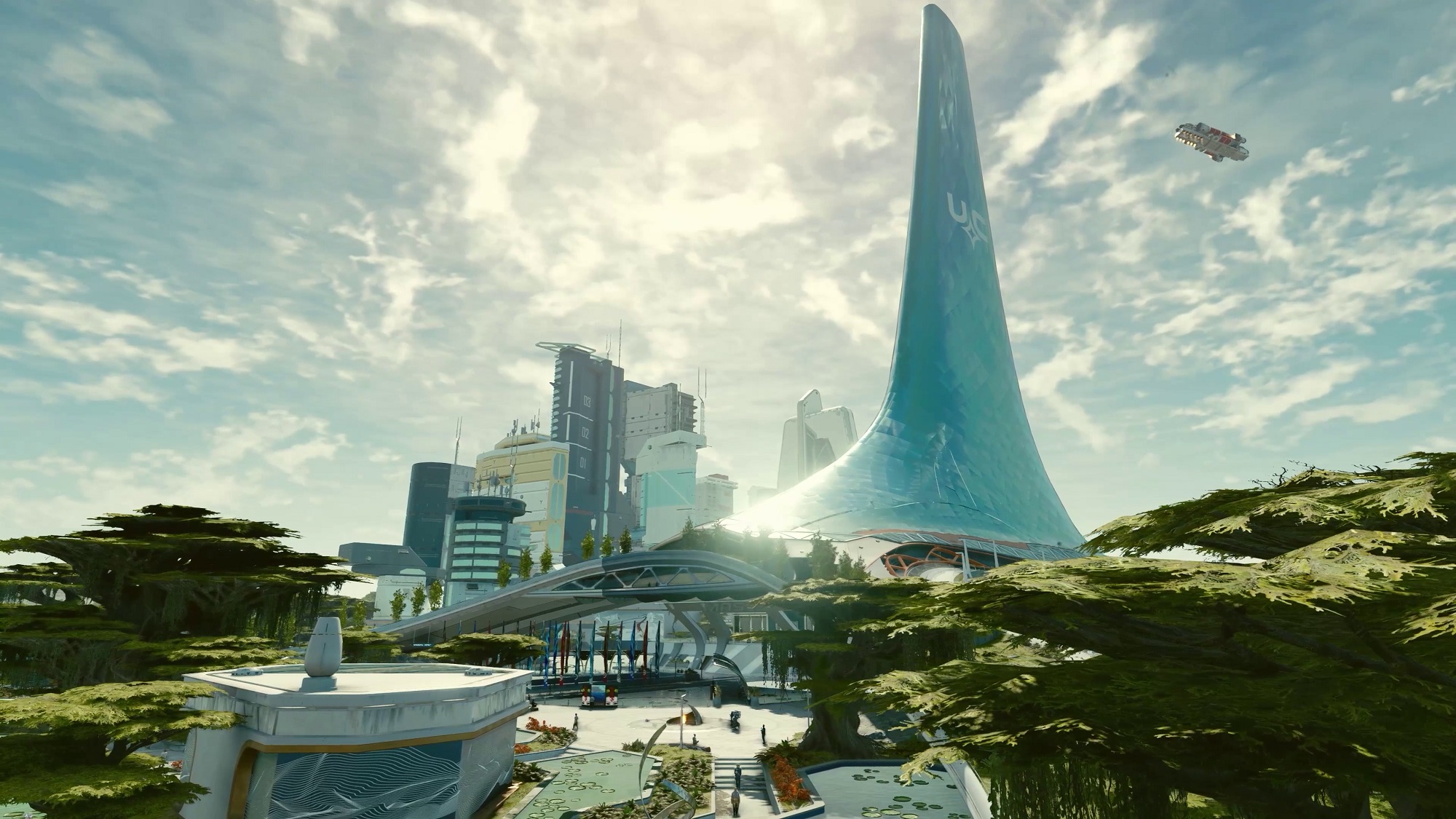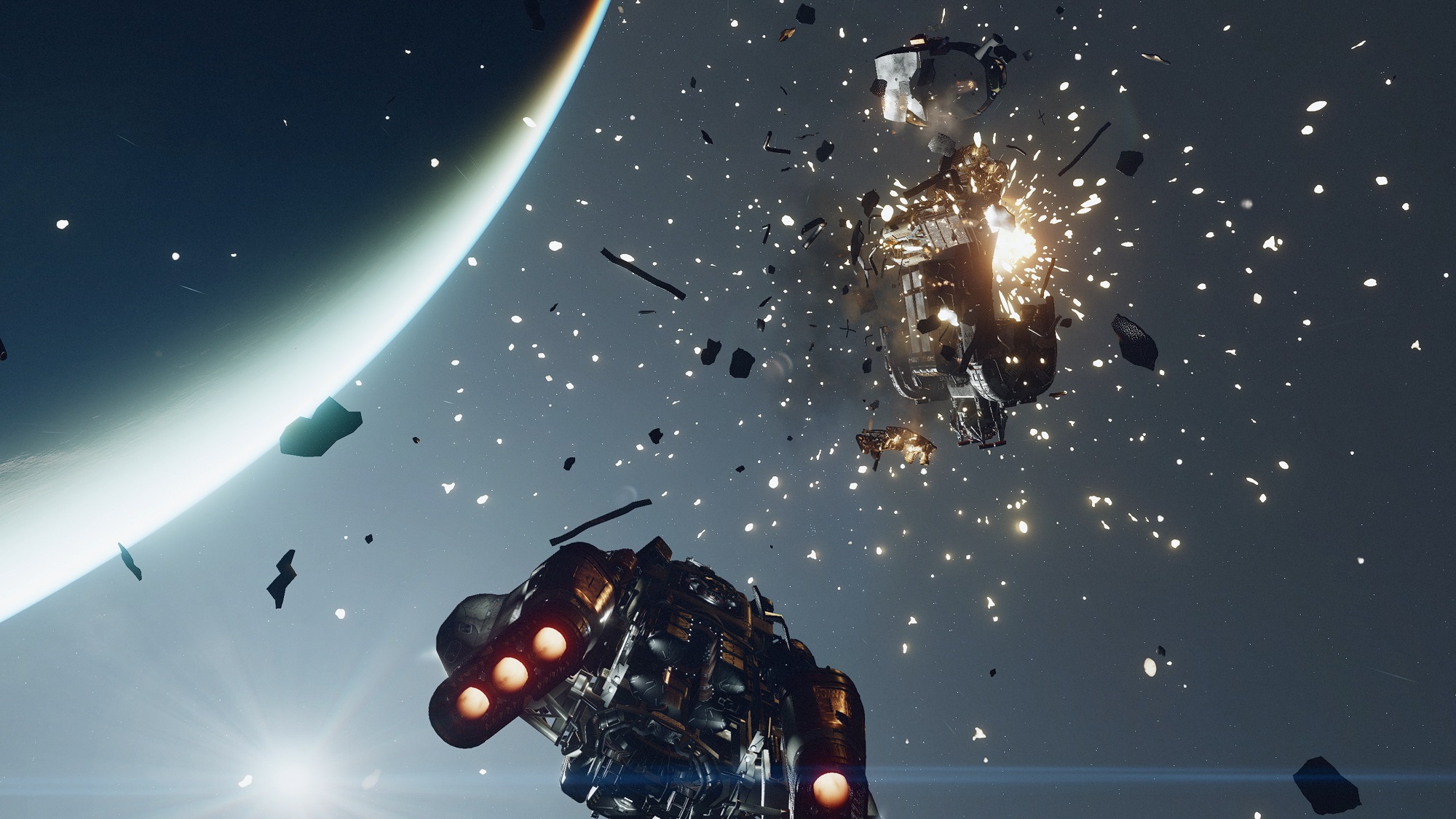Starfield Is An Amalgam Of Every Bethesda Game, But Not Quite An Evolution
After just a few hours in the Settled Systems of Starfield, I realized that I could spend the rest of the year playing nothing but Bethesda's spacefaring action RPG and never come close to seeing everything it has to offer. There are hundreds of planets to explore, thrilling mysteries to solve, so many gameplay systems to learn, and seemingly infinite quests to embark upon. But then, a few hours later, the initial excitement began to fade as I hopped from one landmark to the next on a barren planet. Do I really want to spend that much time in this universe?
Starfield is the most ambitious Bethesda Game Studios title to date. There are elements of The Elder Scrolls and Fallout present in the storytelling and game design, but Skyrim and Fallout 4 both feel like warmups for Starfield in retrospect. This is the culmination of everything the studio has been working toward over the last decade.
More than anything, I was blown away by the presentation. Everything from the cities to the ships to the characterizations of the characters is more considered and comprehensive than in any other Bethesda game. There was so much thought and care (and money and time) put into the creation of this fictional universe that I was immediately invested in the story, which has not always been a given for me with Bethesda. I spent half an hour just staring at all the instrument clusters, coffee makers, and the shockingly detailed bathroom on my tiny ship.

The painstaking effort Bethesda must have expended to create my wildly detailed ship or major cities like New Atlantis, Akila City, and Neon can't be overstated, but it has the unfortunate side effect of amplifying the emptiness of the procedurally generated environments.
One mission had me searching for a specific location on an uninhabited planet. I misunderstood the (admittedly simple) instructions, so I spent the next twenty minutes traveling from landmark to landmark fairly aimlessly. I'll try to avoid the comparisons to No Man's Sky, but Starfield similarly equips you with a scanner that you can use to discover points of interest around the planets so you don't have to wander in circles.
This is where I started to see the cracks in the foundation.
Save for a few rocks to mine or creatures to kill, there was virtually nothing to do on this planet. In No Man's Sky, if you happen to land in an especially lifeless area of a planet, you can just hop back in your ship and fly a few miles in any direction until you find something worth exploring. In Starfield, there are only a few preset landing spots on every planet. And on a vast majority of those planets, there's very little to see or do once you land.
This was especially jarring because it's counter to everything that has made previous Bethesda games shine. You couldn't walk for ten minutes in any direction in Oblivion or Skyrim without stumbling upon a new quest, a strange NPC, or a tempting cave. And while the post-apocalypse of Fallout 3 and Fallout 4 is more desolate than the high fantasy world of Tamriel, there's a terrifying threat around nearly every corner trying to kill you.
Starfield might have more to do than all four of the games I mentioned above, but it's spread out over a universe far, far larger than all of their game worlds combined.

This wouldn't be nearly as big an obstacle if actually playing the game was more dynamic and interesting. While Starfield contains elements of several other Bethesda games, it's most similar to Fallout due to the fact that the combat revolves around guns. Unlike Fallout, Starfield doesn't have a V.A.T.S. system to give players granular control of their shots. Starfield also doesn't have a cover system like Gears of War or any of the modern conveniences of most recent first- and third-person shooters. Instead, you shoot bullet-sponge enemies over and over again until they die. Rinse and repeat. There are a wide variety of guns to choose from, as well as explosives and melee weapons, but this is far from the most engaging combat system in an RPG.
Space combat is just as rote, and although swapping energy between the ship's systems to divert more power to the shields or get your grav drive ready in order to escape a lopsided fight can be exhilarating, shooting other ships isn't all that different from shooting other people. I certainly haven't gone out of my way to engage in space combat so far.
It's a shame because, despite my grievances, I can't wait to spend more time with Starfield. The space exploration group you join early on in the story, Constellation, is full of some of the most well-written and entertaining characters Bethesda has ever created. And there are so many gameplay systems I've yet to dive into. I've only built a single small outpost, but I already have plans for a thriving space colony where I'll station my most talented companions.
There were concerns early on that Starfield was too big for its own good. I think those concerns were justified. This game simply doesn't take advantage of this developer's or their engine's best assets. And yet, it has done enough to hook me, at least to see the story through. More than anything, I'm excited to see what the modding community will do with Starfield once they get their hands on it. Maybe they can finish what Bethesda started.
Starfield is coming to Xbox Series X|S and PC on September 6, 2023.
